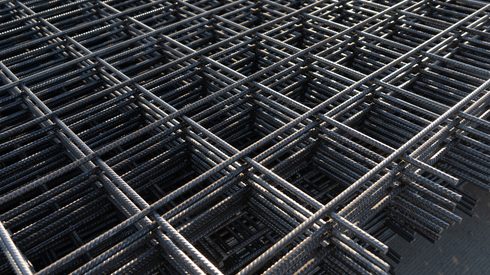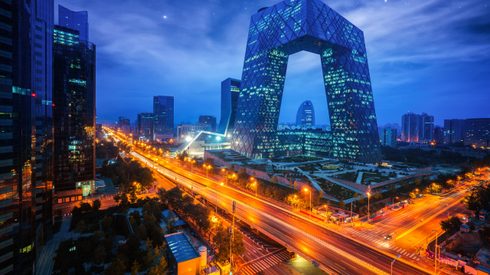The move comes amid ongoing efforts in ramping up DRI and DR pellet production capacity in the Middle East and North Africa region.
The production plant, which is set to be managed by a joint venture (JV) company between Mitsui and Kobe Steel, is expected to commence production in late 2027 with a production capacity of 5 million tonnes of DRI per annum through the MIDREX process.
Plans for a further expansion in DRI capacity are in the pipeline, alongside the construction of a pelletizing plan within the facility. These plans are subject to market conditions in subsequent years.
Apart from supplying to Kobe Steel’s steelmaking facility, the DRI plant is expected to supply DRI shipments into other Asian and European markets.
Middle East an ideal location
Naota Furihata, general manager of the low carbon metallics department at Mitsui told Fastmarkets:
The Middle East is not only rich in natural gas reserves required for DRI production, it provides ideal conditions to move toward renewable energy, making it a suitable area for competitive green hydrogen.
“One of the main considerations behind situating our plant in Duqm was the potential to harness solar and wind energy for our operations,” Furihata added.
DR pellet supply security
Beyond natural gas supply, a stable supply of raw material feed is also a vital consideration.
The Mitsui and Kobe Steel JV plant in Duqm has ease of access – because of proximity – to pellet supply from Vale Oman Pelletizing, an Oman-Brazil joint venture majority-owned by mining company Vale.
At capacity, the Mitsui-Kobe Steel DRI plant would require 7.6 million tonnes of DR-grade iron ore.
Supply diversification and minimizing risks of raw material shortages will be key issues for the JV to manage to ensure smooth operations, according to representatives from Mitsui and Kobe Steel.
The concern over securing a steady supply of DR pellets has been echoed by other market participants in the DRI market.
Global DRI capacity is expected to outstrip DR pellet supply by 19 million tonnes by 2023, according to the International Iron Metallics Association.
End-user DRI demand critical for growth
Despite the uptick in DRI plant projects announced in the MENA region, such as Vale’s green steel hub across the Gulf Cooperation Council (GCC) countries, the Mitsui-Kobe Steel believes that the DRI market in the MENA area is at its infancy and substantial effort is required to harness the region’s potential.
Furihata from Mitsui said that he expects the DRI market to gain traction in the next decade, but this needs the support of strong offtake agreements with regional buyers.
He added that the decision for further investment to ramp up DRI capacity would fundamentally depend on end-user demand levels and potential consumption levels in the coming decades.
A pivot in end-user buying patterns toward low-emission green steel and iron ore products is expected to be a crucial premise before more investment is committed toward expanding DRI capacity.
Relevant pricing coverage that covers the DRI supply chain
Beyond end-user demand, Mitsui-Kobe Steel is of the view that the DRI market in MENA would benefit from price discovery over various key products in the supply chain.
Mitsui-Kobe Steel highlighted that the existing pricing coverage for upstream and midstream products are deeply influenced by mainstream trading patterns with a strong focus on blast furnace products such as iron ore sinter fines and coking coal.
The pricing eco-system is also strongly skewed toward traditional steelmaking hubs, such as China.
A majority of blast furnace products are currently traded on a CFR China basis.
Mitsui-Kobe Steel believes that the price discovery process should adapt to align with changes in global iron ore and steel production.
Shuichiro Tsuchikawa, Deputy General Manager in Mitsui’s Low Carbon Metallics department said that pricing references for DR pellets, steel scrap and DRI shipments would have the biggest utility for DRI producers in terms of pricing and procuring raw materials.
Steel scrap and DR-pellets being key feed products for DRI shaft furnaces, have a strong bearing on the operational expenditure (Opex) of DRI producers.
Current pricing benchmarks for steel scrap and DR-grade materials are not a direct reference for a Middle East DRI producer, and certain discounts have to be adjusted for freight costs, according to Tsuchikawa.
Mitsui-Kobe Steel believes that the DRI market will benefit from a price discovery process that better reflects the market fundamentals of the DRI supply chain.
Middle East DRI market requires more consolidation
Stronger efforts are nonetheless required for the Middle East to shore up its position as a viable hub for producing low-carbon metallics toward green steelmaking.
Representatives from the Mitsui-Kobe Steel venture believe that a consolidated effort in establishing a self-sufficient upstream market and an uptick in end-user demand from global steelmakers will be crucial for the development of the Middle East as a DRI hub.
“Mitsui is also constantly on the lookout for other suitable regions in establishing further DRI projects such as North America, Brazil, Australia or even Malaysia,” Furihata added.
(This story was updated to include additional information regarding the price discovery process in the DRI supply chain from the interview with Mitsui and Kobe Steel.)




